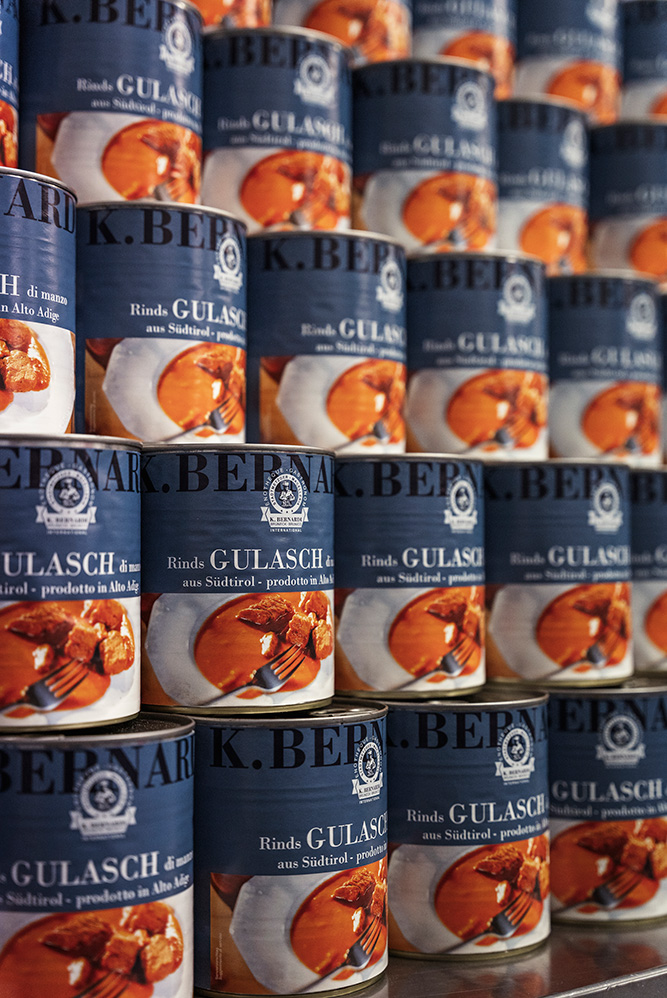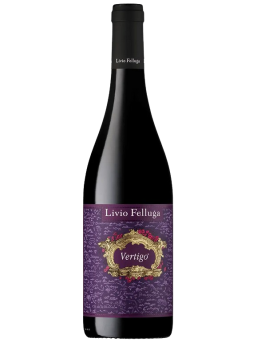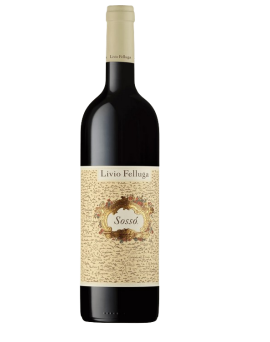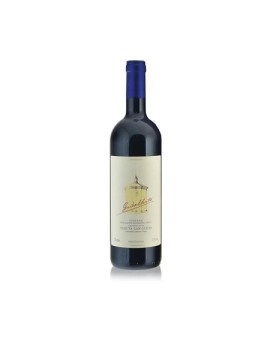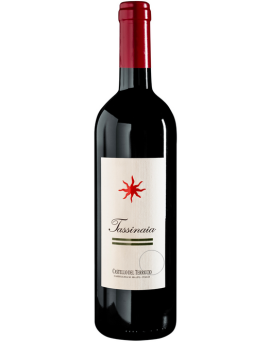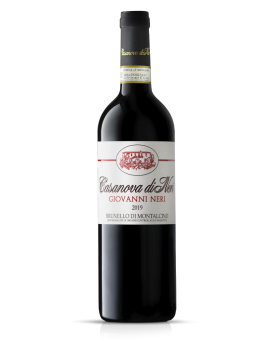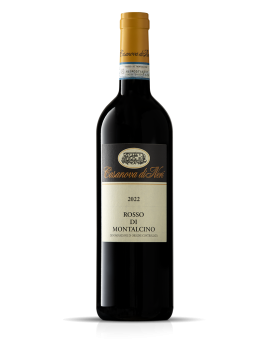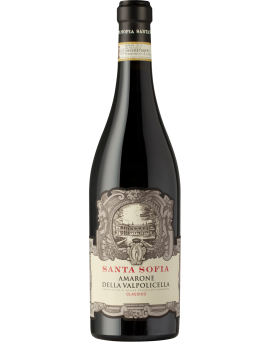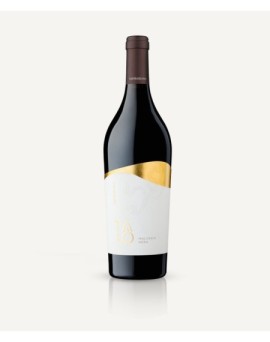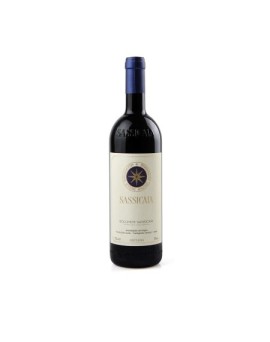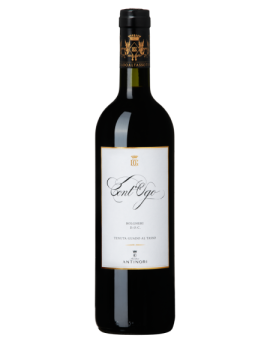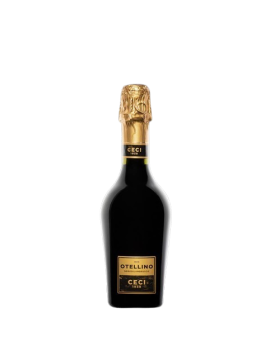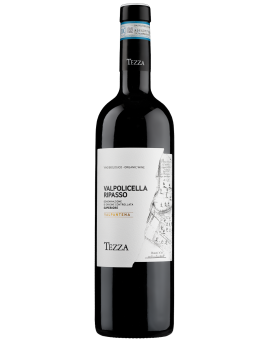Basket
0
Guidalberto 2022 TENUTA SAN...
TYPOLOGY Dry red wine<br /><br />PRODUCTION AREA Loc. Vecchio Frantoio- Bolgheri<br /><br />VINE 60 % Cabernet Sauvignon, 40 % Merlot<br /><br />SOIL TYPE Strong presence of calcareous areas rich in galestro and stones and partially clayey<br /><br />VINIFICATION Grapes and berries are carefully selected by hand. Soft pressing and destemming of the bunches to avoid breaking the berries and excessive release of<br />tannins. Alcoholic fermentation in stainless steel vats at a controlled temperature of around 26-28 degrees, without the addition of any external yeasts. Maceration in this<br />vintage was about 10-13 days for the Merlot grapes and 13-16 days for the Cabernet Sauvignon grapes, with frequent pumping over and délestages to obtain more balanced<br />musts and favour aromatic extraction. Malolactic fermentation, which began in early November, was also carried out entirely in steel vats, after which the musts were placed<br />in barriques for ageing.<br /><br />VINEYARD SYSTEM Spurred cordon<br /><br />COLOUR Ruby red<br /><br />PERFUME Persistent with floral notes<br /><br />PAIRINGS Red meats, mature cheeses<br /><br />FLAVOUR Excellent roundness, gentleness and sweetness, with an organoleptic depth devoid of sharp edges. Excellent structure with great balance and persistence<br /><br />Classification I.G.T.<br /><br />Alcohol content: 13,00° Vol.<br />
Price
€61.40
Tassinaia 2019 Castello del...
<br />Denomination: I.G.T. Rosso Toscana (Tassinaia)<br />Producer: Castello del Terriccio<br />First vintage: 1992<br />Grapes: Cabernet Sauvignon, Merlot<br />Analytical data: Alcohol degree: 14.50%.<br />Soil type: The soils where the vineyards are located are characterised by various and composite morphologies with a strong presence of stones and fossils; the altitude is<br />between 100 and 300 metres above sea level, with south/south-west exposure.<br /><br />Training system: spurred cordon<br />Planting density: 5,600 vines/Ha. for old vineyards; 6,250 vines/Ha. for new vineyards<br /><br />Climatic trend: Autumn began with rain and temperatures above the seasonal norm, while December and January were very cold months with freezing day and night<br />temperatures accentuated by tramontana winds and a lack of rain. Spring was characterised by dry weather. Summer arrived as early as mid-May with temperatures above<br />the seasonal average, as did the summer months. The veraison began in mid-July and the climatic trend brought forward<br />the ripening times of the grapes. Harvesting began early (at the end of August for the Merlot grapes) and continued for the Cabernet Sauvignon grapes until the end of<br />September. Healthy, crisp and well ripened grapes resulted in musts that were not overly structured, characterised by good acidity and a higher alcohol content than in other<br />vintages. higher than in other vintages.<br /><br />Harvest period: The harvest began at the end of August and was characterised by characterised by healthy grapes and perfect veraison.<br /><br />Vinification notes: Extremely soft pressing and destemming. Fermentation in steel vats at a controlled temperature, with maceration of the grapes for about 9-12 days for the<br />Merlot and 12-15 days for the Cabernet. During fermentation subsequent pumping over and délestages.<br /><br />Ageing: Ageing takes place in separate masses for each variety, in French oak tonneaux of second and third passage for 16 months. After being blended and bottled it rests<br />a further 12 months in bottle before being marketed.<br />
Price
€32.20
Brunello di Montalcino docg...
GIOVANNI NERI<br />BRUNELLO DI MONTALCINO DOCG<br /><br />Giovanni Neri's Brunello di Montalcino embodies tradition, production philosophy, the values of sustainability and typicality of the territory, experience and passion in the<br />vineyard and cellar. Fifty years after the purchase of the first vineyard, Giacomo, Giovanni and Gianlorenzo dedicate to the founder of Casanova di Neri a wine that is a great<br />expression of pure Sangiovese born mainly from a vineyard that boasts a marvellous exposure, splendid vines more than half a century old and exceptional soil. Giovanni<br />Neri creates another great scenario that once again combines the importance of tradition with our continuous quest for innovation.<br /><br /><br />NOTES OF GIOVANNI NERI<br /><br />It presents itself to the eye with a bright, brilliant red colour. Cherry aromas emerge on the nose. White flowers and blood orange emerge with a little airiness. The palate is<br />well balanced, creamy and releases the purity of red fruits. The finish is savoury and of great purity. The greatness of the 2019 vintage can be glimpsed but will be best<br />expressed after a few years of bottle ageing.<br /><br />VINTAGE NOTES<br />The winter was characterised by mild temperatures with average rainfall compared to previous years. A stable and sunny March and April were followed by an unusual May<br />with very low temperatures and abundant rainfall. All these factors contributed to delaying flowering and fruit set by a few days. June and July were warm and dry with high<br />peaks that allowed the initial vegetative delay to be recovered. Abundant spring water reserves and a warm and stable August allowed the grapes to ripen regularly.<br /><br /><br />AGEING PERIOD 30 months in casks - 22 months in bottles<br />ALCOHOL CONTENT 15%.<br />DRY EXTRACT (g/lt) 31.5<br />TOTAL ACIDITY 5.8<br />SERVING TEMPERATURE (°C) 16-17°<br />
Price
€65.40
Rosso di Montalcino 2022...
NOTES ON THE YEAR<br />The winter of 2022 was characterised by low temperatures and almost no rainfall. Budding took place in the first week of April, on average with previous vintages. Spring<br />continued with above-average temperatures that favoured vegetative development and early flowering. May and June were dry with classic summer temperatures. The rains<br />that arrived at the end of July and August allowed the vines to ripen in a balanced and constant manner. Harvest began in the first ten days of September.<br /><br />VINTAGE<br />2022<br />DENOMINATION<br />Rosso di Montalcino DOC<br />GRAPE VARIETY<br />Sangiovese 100%<br />NOTES BY GIOVANNI NERI<br />Rosso di Montalcino 2022 shows a beautiful young and lively red colour. The nose is pleasantly fruity, with small red fruits and spices. On the palate it is refined and round,<br />the tannins are in perfect balance with the acidity. All these characteristics result in a Rosso di Montalcino of great finesse and complexity.<br />HARVEST<br />Manual, in the first ten days of September.<br />AGEING PERIOD<br />8 months in casks<br />ALCOHOL CONTENT<br />14%<br /><br /><br />VINIFICATION<br />Manual selection of the bunches before destemming and<br />selection of berries with an optical selector. Followed by<br />spontaneous fermentation without the use of added yeasts and<br />maceration assisted by frequent punching-down. The whole<br />takes place in steel vats at a controlled temperature for 18 days.<br />controlled temperature for 18 days.<br />TOTAL ACIDITY<br />5,31<br />PRODUCTION LOTS<br />1123<br />SERVING TEMPERATURE (°C)<br />16 - 17°<br />DRY EXTRACT (g/lt)<br />30,9<br />
Price
€29.80
Amarone Valpolicella DOCG...
<br />Vinification<br /><br />Destemming and pressing of the grapes.<br />Maceration: about 20 days in stainless steel tanks.<br /><br /><br />Maturation and ageing<br /><br />36 months in large Slavonian oak barrels of 15 to 50 hl.<br />About 6 months in the bottle.<br /><br /><br />Sensory impressions<br /><br />A dark, almost inky ruby red colour with rich garnet hues. Bold yet delicate on the nose, it is redolent of ripe cherries, cassis and prunes; hints of milk chocolate, rhubarb<br />and balsamic mentholated tobacco also come through, creating an exquisitely refined, harmonious and elegant bouquet. Tonic and juicy on the palate, it is a ripe, full-bodied<br />wine with extremely lively tannins; an invigorating citrus note perfectly balances its high alcohol and helps make this big wine a most enjoyable drink.<br /><br /><br />Recommended food pairings<br /><br />Amarone is made from dried grapes and is therefore a concentrated, round and powerful wine, an elixir of long life. After a few years of bottle ageing, it becomes an excellent<br />complement for luxurious dishes such as jugged hare, roast turkey with truffles, braised beef in red wine, Amarone risotto. When savoured at its peak, it pairs perfectly with<br />ripe, pungent cheeses. A daring combination? Try it with cotechino.<br />
Price
€39.60
Malvasia Nera IGP Salento...
<br />Talò Malvasia Nera Salento I.G.P.<br />750 ml<br /><br />In San Marzano, the vine-growers take care of their small vineyard as one would a garden.<br />Their stories are many, as are the names of their families.<br />We have chosen one, Talò, to thank them ideally: family for family, story for story.<br /><br />Grape variety: Malvasia Nera di Brindisi.<br />Area: San Marzano, Salento, Puglia. About 100 metres above sea level.<br />Soil: Medium-textured, clayey, shallow and with a good presence of skeleton.<br />Cultivation: Espallier (4,500 vines per hectare).<br />Harvest: Second half of September.<br />Vinification: Thermo-controlled maceration for about 10 days followed by alcoholic fermentation with selected yeasts.<br />Ageing: In French oak barriques for 6 months.<br />Organoleptic characteristics: Intense ruby red colour; complex bouquet reminiscent of ripe red fruits and spices; very full-bodied wine, pleasantly soft and long lasting.<br />Food pairing: Red meats, roasts with elaborate sauces and moderately mature cheeses.<br />Serve at: 16-18 °C.<br />
Price
€12.20
Cont'Ugo 2021 750ml...
Climate<br />The 2021 growing season in Bolgheri was impacted by a long period of drought that lasted from June throughout September. However, unlike the 2017 vintage, winter was<br />particularly rainy which contributed to replenishing groundwater reserves in the deep soils that characterize this territory. The vines had the necessary soil moisture for the<br />entire growth cycle. Spring was cool resulting in a slight delay in bud break and flowering. Temperatures during the summer months were never excessive and ensured a<br />normal, gradual ripening phase of the fruit in each vineyard and produced berries that were whole and in perfect health. Merlot berries for Cont'Ugo began on September 8th<br />in the earlier ripening vineyards and was completed at the end of September in those late-ripening parcels.<br /><br />Vinification<br />After the grapes were hand harvested and carefully selected on sorting tables, the berries were transferred into temperature controlled stainless steel vats where alcoholic<br />fermentation and maceration on the skins took place over a period of about 20 days. Fermentation temperatures were managed based on the ripeness of the grapes: lower<br />temperatures were applied to preserve and enhance aromatic freshness while higher temperatures, up to 30 °C (86 °F), to boost extraction of phenolic compounds and<br />enhance structure. The different batches were divided according to their individual characteristics and then transferred into barriques where malolactic fermentation was<br />completed by the end of the year. The finest batches were blended and transferred back into second fill barriques for an additional 12-month period of aging, then bottled.<br />Cont'Ugo was bottled during the first half of March 2023.<br /><br />Historical Data<br />The Guado al Tasso estate is located in the small, but prestigious, Bolgheri appellation on the coast Tuscany's Upper Maremma, some 60 miles (100 kilometers) to the<br />southwest of the city of Florence. This appellation has a relatively short history (it was created in 1994) but can boast a worldwide fame as a reference point wine on the<br />international scene. The estates covers an area of about 320 hectares (790 acres) planted to vines, in a splendid plain surrounded by hills known as the Bolgheri<br />amphitheater for its particular geographical conformation. The Guado al Tasso vineyards consist principally of Cabernet Sauvignon, Merlot, Syrah, Cabernet Franc, Petit<br />Verdot, and Vermentino grapes; this last cultivated with both with white and red varieties. They enjoy a mild climate due to the nearby presence of the Mediterranean Sea,<br />constant breezes mitigate summer heat, and the rigors of winter clear the sky and maintain a high degree of solar light and radiation. Cont'Ugo is produced exclusively from<br />Merlot grapes in order to interpret the territory of Bolgheri from a new perspective. The vineyards, situated at an altitude between 150 and 200 feet (45-60 meters) above sea<br />level on clayey-loam soils prevalently of alluvial origin, gave Cont'Ugo great depth and complexity while conserving the fragrance and richness of fruit which are typical of<br />Merlot.<br /><br />Tasting Notes<br />Cont'Ugo 2021 in intensely ruby red in color. The nose presents compelling aromas of small ripe red fruit, Marasca cherries and raspberries, together with hints of juniper<br />and moss. The palate is vibrant with excellent structure and a persistent fruity finish.<br />
Price
€53.20
Lambrusco IGT Frizz....
OTELLO CECI NERODILAMBRUSCO -<br />EDITION 1813<br />Learn the rules like a professional, so you can break them like an artist. (Pablo Picasso) Otello Ceci Nerodilambrusco is the breaking of rules, it is the power of the artist. It<br />is an idea, a promise, a pact. There is the whole world of Lambrusco in this wine and its being recognised, but there are also roads little travelled by tradition that exalt the<br />rightness of Lambrusco, and it is here that the journey begins in the emotion of discovery, where depth and lightness are the ways that exalt the art of this wine.<br />TECHNICAL DATA SHEET<br />Denomination: Lambrusco Emilia I.G.T.<br />Typology: Sparkling red wine<br />Grape variety: Lambrusco<br />Harvest: end of September<br />Soil: clayey-calcareous of medium texture<br />Vinification: in red with maceration of the must on the marc for up to seven days, the alcoholic fermentation takes place in steel tanks at controlled temperature.<br />Processing: Martinotti<br />Alcohol content: 11% vol.<br />Residual sugar: 30 g/l<br />Total acidity: 6.7 g/l<br />Serving temperature: 8/10°.<br />The data are to be considered as product averages.<br /><br />SENSORY ANALYSISAppearance: Intense ruby red colour, with a rich, lively and persistent mousse.Bouquet: Intense, satisfying, sinuous. The fruity notes are reminiscent<br />of cherry and berries such as blackberry and strawberry. The floral hints of violets accompany the pleasantly spicy and mineral finish.Taste: Surprising and satisfying.<br />Pleasant balance between softness, freshness, sapidity and good tannic texture. The intense nature of the aromas is confirmed on the palate and is enhanced by the long<br />and deep finish. A promise kept: Otello Ceci is a wine that can play with countless pairings by varying the serving temperature. It is ideal for pairing with dishes that express<br />a prevalent fatness such as traditional Italian salami and cold pork meats. It goes well with well-structured pasta and risotto dishes, as well as with medium-aged cheeses or<br />grilled meats. It can also be perfectly expressed as a meditation wine.<br />
Price
€11.00
Valpolicella Ripasso DOC...
GRAPE VARIETIES. Corvina and Rondinella.<br />AREA OF PRODUCTION. Valpantena (Verona).<br />SOIL CHARACTERISTICS. Calcareous and well endowed with organic substance. Rich in potassium, calcium and magnesium.<br />TRAINING SYSTEM. Guyot and Veronese Inclined Pergola.<br />HARVEST TIME. September and October.<br />VINIFICATION. Destemming and crushing of the grapes, inoculation with selected yeasts.<br />FERMENTATION. With maceration in steel tanks at 25°C. Daily pumping over and delestage. Re-fermentation on the marc of Amarone.<br />AGING. 24 months in the cellar.<br />ORGANOLEPTIC CHARACTERISTICS. Concentrated ruby red, perfume of blackberry and blackcurrant, dried violets, black pepper, balsamic. Soft and warm, with adequate<br />tannicity.<br />PAIRINGS. Grilled meats, cold cuts and cheeses.<br />RECOMMENDED TYPICAL DISH. Polenta and soppressa.<br />IDEAL SERVING TEMPERATURE. 16°C.<br />
Price
€16.40

